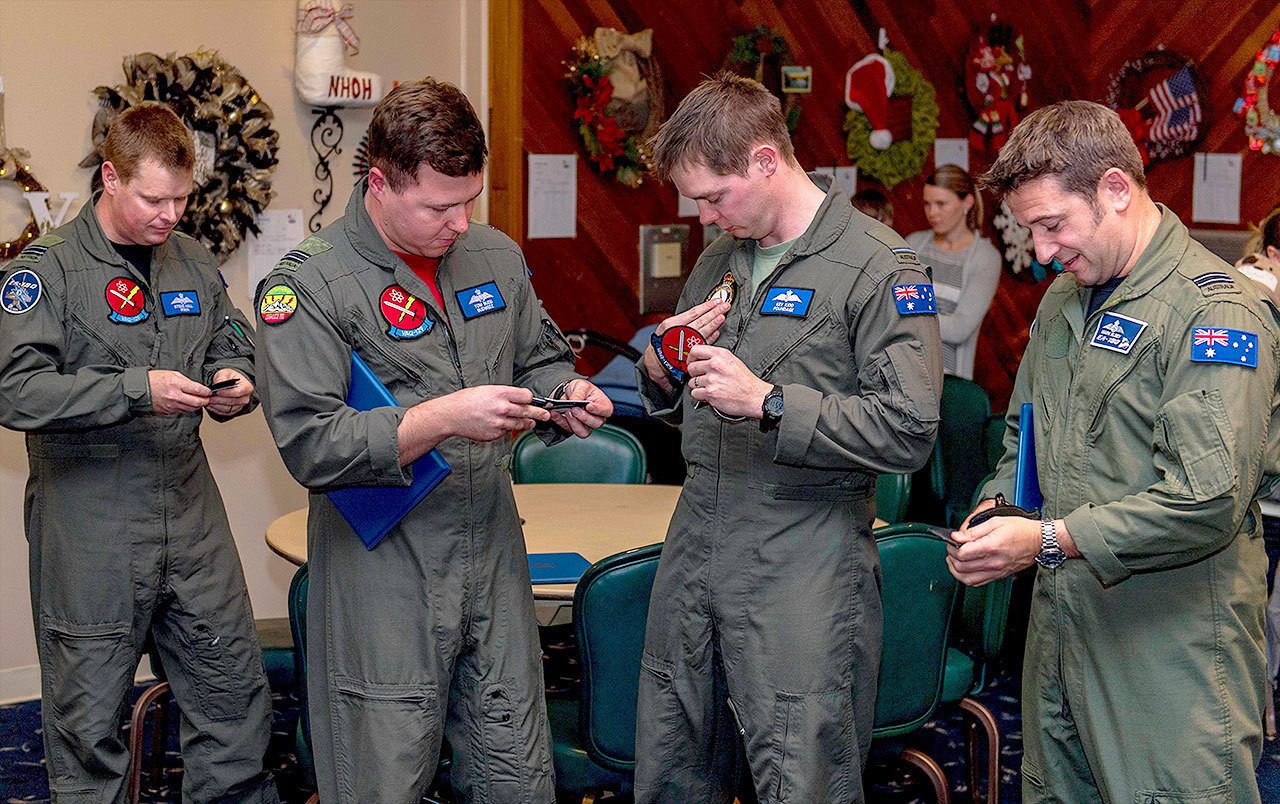For now, Whidbey is home for members of the Royal Australian Air Force.
To make the long-term guests feel at home on the island, “Welcome Aussies” signs are popping up in the windows of Oak Harbor businesses.
A total of 75 Australians are living in the area, according to Grant Fifield, wing commander and commanding officer for the RAAF Number 6 Squadron. Of that number, 26 are permanent duty personnel and the rest their family members .
Fifield said the total number of squadron personnel is 220.
The “welcome” signs were created and distributed by the Oak Harbor Area Council Navy League and Oak Harbor Chamber of Commerce.
Navy League President Steve Bristow said that Australians always welcome American sailors in the land down under with open arms, and he wanted to return the sentiment to ensure the Australians feel welcome anywhere they go.
The mission of the League is to educate the public and let everyone know the Australians are an integral part of our community.
The RAAF’s first EA-18G Growler squadron, No. 6, is currently located at Naval Air Station Whidbey Island. The squadron has existed for about 100 years, since WWI, according to Fifield said. Australia is the only country that the United States shares its electronic warfare and Growler technology with.
The squadron previously had a fighter/attack role flying the F/A-18F Super Hornet. The mission has changed to electronic warfare, a capability that was missing previously, according to Fifield.
The squadron will eventually return to RAAF Base Amberley in Queensland, Australia, Fifield said.
“We are pleased to be training alongside our partners in the Royal Australian Air Force, as they prepare to stand up the first tactical Airborne Electronic Attack capability outside of the U.S. Navy,” said Capt. Scott Farr, commander for Electronic Attack Wing, U.S. Pacific Fleet.
“This tactical partnership is a critical part of President Obama’s overall strategic rebalance to the Pacific,” he said. “It is rewarding to know that we in the Pacific Northwest are playing a role in the implementation of the President’s forward looking strategy.”
Aside from work and fulfilling training and mission requirements, the members of the RAAF have made themselves at home on Whidbey and are adapting to American life.
“My daughter has definitely started to adopt the American accent,” said RAAF member Jason Goff.
“It’s nice that this is not just a holiday and we can be here for a while,” Fifield said.
“I would have probably never have had the opportunity to travel to America,” said Flight Lt. Bronwyn Rowe, a liaison officer and mission support staff member who has now lived here for three years.
Rowe said she considers Whidbey her home away from home.
While so much about Americans and Aussies are the same, there’s a great deal that’s also different, and it takes getting used to, said Kevin Kidd. For example, he said, the custom of tipping servers is not followed in Australia.
Goff said he’s also not used to having his children out of school for three months during the summer.
“For three months I don’t know what to do with them,” Goff said.
Learning to drive on the “wrong” side of the road also takes some getting used to.
“My wife and I go to the mall to see a movie and end up getting in on the wrong side of the car,” Goff said jokingly.



